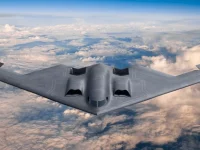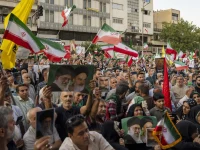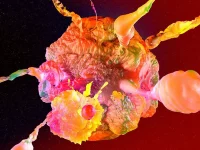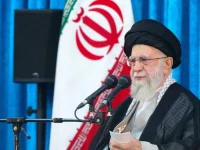Africa. Sudan’s unrelenting war: can the world move beyond half-measures?

TERRIBLE Marked by widespread atrocities and fuelled by global arms supplies, the war in Sudan lays bare a critical failure of global efforts to deliver justice and peace for millions of people.
The war between the Sudanese army and the Rapid Support Forces has ravaged Sudan for nearly 17 months, claiming thousands of lives and driving over 10 million from their homes. UN-backed investigators released a sobering report on Friday, detailing grave violations that could amount to war crimes and crimes against humanity, including indiscriminate airstrikes, torture, rape, enslavement, child recruitment and ethnically motivated killings.
While the scale of the war is unprecedented, Sudan is no stranger to conflict, from two civil wars that culminated in genocide to a chunk of the country seceding to 35 attempted coup d’états in its modern history. The war that engulfed Darfur in the 2000s claimed hundreds of thousands of lives too. The bloodshed was such that the Security Council referred it to the International Criminal Court and imposed an arms embargo on the region. A commission of inquiry was also set up to investigate grave violations and peacekeeping missions were deployed by the United Nations and the African Union.
Twenty years later, the protagonists of past atrocities not only evaded justice but highjacked what was meant to be a transition to democracy before unleashing a war that has opened old wounds and threatens to fragment the territory further. The international community is not short of options to help Sudan out of its hellscape, as experts and advocates pointed out at an event organised by Geneva Solutions and the Geneva Press Club on Monday 9 September 2024.Many actually resemble what has been done in the past, but can it do it right this time?
For 20 years, the ICC has investigated alleged genocide in Darfur, issuing four indictments, including one against former president Omar al-Bashir. Yet only one key figure from the Janjaweed militia, responsible for the Darfur massacres, has been arrested.
“If there were actual trials and there were actual sentencing that really took place in the last 20 years, you think there would be a coup d’état?” Mona Rishmawi, member of the Fact-Finding Mission for Sudan set up by the Human Rights Council last year, said at the event.
Rishmawi believes that impunity is a root cause of the current war. The Swiss international law expert was involved in setting up the COI for Darfur two decades ago and recalls reports from that time that were eerily similar to recent accounts of violations, many targeting the same communities. The recent report she co-authored details once again atrocities against the Massalit community in the West Darfurian capital of El-Geneina, committed by RSF forces, successors of the Janjaweed.
Mohammed Salih Yassin, a figure in the pro-civilian coalition, Tagadum, and a former member of the Sudanese transitional government before the 2021 coup, stressed that discrimination based on ethnicity or religion has long fuelled Sudan’s conflicts. “This generated anger and rebellion in South Sudan, and at the end of the day…South Sudan opted for its independence. I hope that the ongoing war will not lead to more disintegration and fragmentation of the Sudanese territory,” he said, also speaking at the event.
Fuelling the violence
The responsibility for Sudan’s crisis extends well beyond those shooting the guns. A recent report by Amnesty International uncovered weapons and ammunition were flowing to Sudan from Turkey, China, Russia, Serbia and the United Arab Emirates, reaching both the RSF and the Sudanese army and even being diverted to Darfur, in violation of the existing arms embargo.
“That is why both parties to the conflict believe that they can win this conflict militarily,” said Abdullahi Hassan, researcher on Sudan and Somalia at Amnesty International. The human rights organisation’s report was instrumental in convincing Rishmawi and her team that a wider arms embargo was necessary to pressure the warring sides to cease the fighting. But the power to make such a decision rests with the Security Council, where China and Russia – both implicated in the arms flow – hold veto power. What’s more, Egypt and the UAE, both main supporters of the SAF and RSF, are also sponsors of US-led peace talks on Sudan, raising questions about whether the United States would push for a move that might alienate its allies.
Even if the political atmosphere cleared for an arms embargo, enforcing it would be tough, as seen with the ongoing violations of the Darfur arms embargo. Control over Sudanese territory is fragmented among multiple factions, with checkpoints complicating the situation, according to Yassin. Still, Hassan argues there are other ways to stem the arms trade. “International law, especially the Arms Trade Treaty, which China is a party to, requires states to ensure that they are not sending weapons and ammunitions to a country where it is possible to use those weapons to commit human rights violations,” he said.
Yassin pointed out that arms smuggling was part of a wider economy of war that internal and external actors were profiting from, and that also extended to grabbing Sudan’s resources, including its rich oil and mineral reserves like uranium and gold.
One of the fact-finding team’s key messages is that those supporting the warring parties either financially or through weapons run the risk of facing justice themselves as accomplices of international crimes. But while the wheels of justice turn slowly, the collection of evidence remains a refuge for hope.
Amnesty, along with dozens of other rights groups, are calling on the Human Rights Council, meeting this month in Geneva, to renew the fact-finding mission’s mandate, “the only existing international mechanism that has a broader investigative and accountability mandate”, Hassan recalled, noting justice also acts as a deterrent.
For Yassin, impartial investigations are the only way to ensure lasting peace. “People want justice. People want to see that their rights are brought back,” he concluded.
Sudan Human rights
GenevaSolutions.news
———————————————————————————————————
NZNTV En 2021 il y a eu un espoir de transition mais qui n’a pas abouti… video










